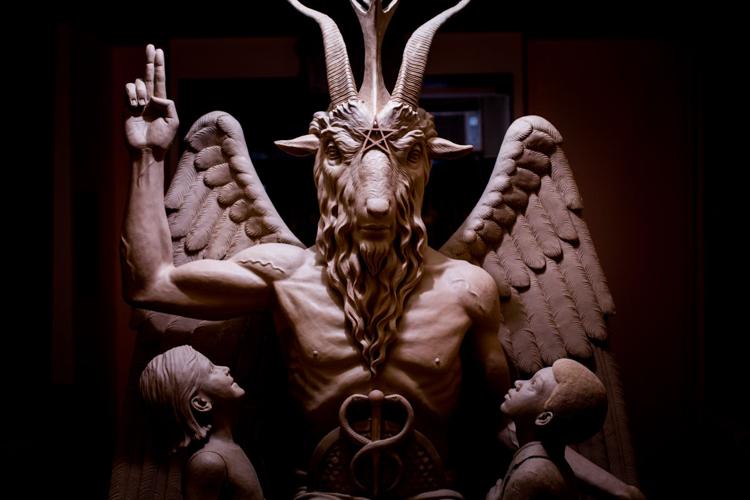Phoenix has long looked at Tucson as an unusual town.
Now they know it’s worse than that — we’re satanic.
As you may have heard, Tucson lawyer Stu de Haan asked to give the invocation at a Phoenix City Council meeting on behalf of his claimed faith, Satanism. The capital city’s administration went ahead and scheduled him to perform it before the Feb. 17 meeting.
But after word about the satanic invocation got out last week, all hell broke loose. The Phoenix City Council held an emergency executive session Tuesday, Feb. 2, to discuss legal options for preventing such an outrage. But their effort is doomed.
That’s because de Haan and his co-religionists at The Satanic Temple have outfoxed the Phoenicians.
The trick here is that these Satanists are people with a scary name but praiseworthy beliefs. The first of the group’s seven tenets, for example is this: “One should strive to act with compassion and empathy towards all creatures in accordance with reason.”
Another: “One’s body is inviolable, subject to one’s own will alone.”
Far from supporting evil acts, de Haan and the temple are largely dedicated to working on the separation of church and state. My reading is that’s the primary reason for the temple’s existence. Having a “satanic” faith allows them to bring issues to the fore that otherwise can be avoided.
When we talked Tuesday in his downtown Tucson office, de Haan, 35, noted that Phoenix has, in the past, allowed a “secular humanist” to do the invocation. No one complained till now. That has left him and the temple, he believes, in a “win-win” situation.
“They’re either going to let us go forward, which I’d be happy with, or they’ll do what’s constitutionally correct and they’ll stop it (the invocation) altogether, which I’d also be happy with,” he said.
In fact, the Freedom From Religion Foundation has gotten involved, sending a letter on Monday to Mayor Greg Stanton.
“Government prayers are an all or none proposition: either allow every sect in or stop the prayers altogether,” they said.
Stanton acknowledged their right to give an invocation but also said, “I strongly disagree with this group’s message,” which raises the question of whether he has any idea what their message is. De Haan said the invocation would largely be based on the group’s seven tenets.
This is probably the most potentially offensive of those: “The freedoms of others should be respected, including the freedom to offend. To willfully and unjustly encroach upon the freedoms of another is to forgo your own.”
In other words, the group’s beliefs don’t bear much resemblance to what most of us think is represented by the red guy with a long tongue and forked tail.
The issue they’re bringing up, though, hits us right here at home.
The Pima County Board of Supervisors and the Tucson City Council hold invocations before their meetings. This practice at Pima County goes back to 1993, while the city’s invocations existed in the 1970s if not before.
Both the council and the board have long lists of people who may perform invocations, and each entity’s practice is to rotate among them. Almost everybody on both lists represents a Christian church of one stripe or another, but there is a handful of rabbis, an imam, a Buddhist and an O’odham official.
A Wiccan — far more representative of Tucson than a Satanist — has performed a city council invocation.
De Haan said he wasn’t aware the Tucson governments held invocations before making the request to appear before the Phoenix City Council. He said he’s happy with the choice because of all the attention his planned appearance is generating.
In 2014, the U.S. Supreme Court ruled in a 5-4 decision that elected government bodies may allow religious invocations before their public sessions — essentially saying it’s OK as long as they keep the prayer short and the message broad.
“Prayer that reflects beliefs specific to only some creeds can still serve to solemnize the occasion, so long as the practice over time is not exploited to proselytize or advance any one, or to disparage any other faith or belief,” Justice Anthony Kennedy wrote for the majority.
I wouldn’t expect de Haan to proselytize. While he insists he has a “sincere” religious belief in Satanism as defined by this temple, the real point here seems to be to prove a point.
And it is a good one — not just about religion in government but also about the rights of minorities.
“Either let our voices be heard, or don’t do this in a government function,” he said. “It’s all or none.”
And as true in Tucson as it is in Phoenix.







